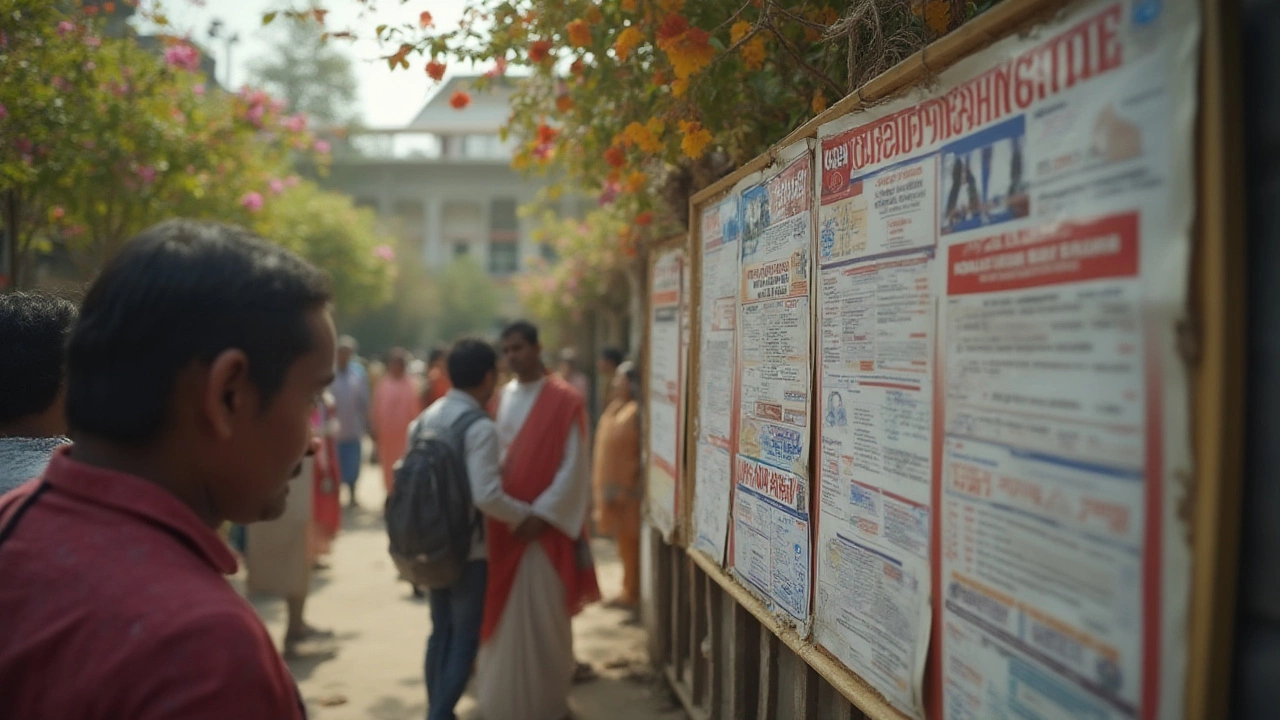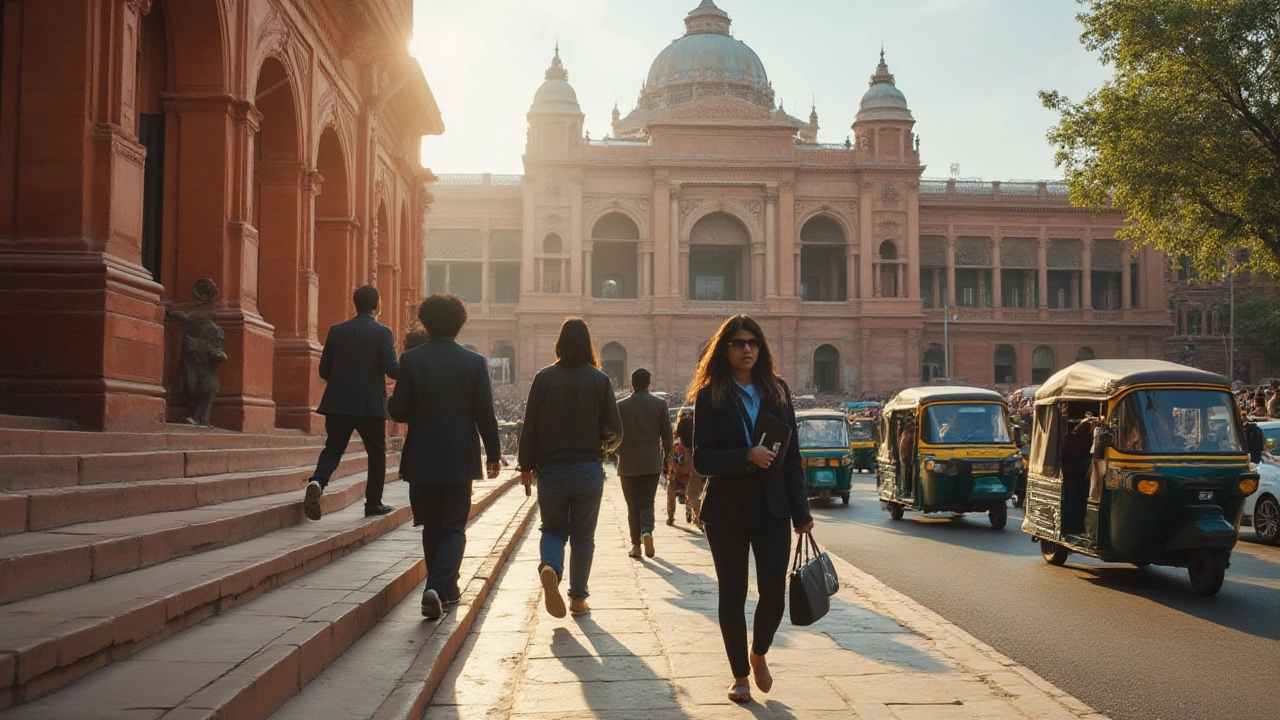Tons of folks believe landing a government job is just about ticking boxes: submit a resume, do the interview, and hope for the best. The reality? Local government jobs attract hundreds—sometimes thousands—of applications for a single opening. In 2025, the field’s as competitive as ever, but it’s also full of opportunity for anyone ready to play smart. With cities digitizing everything from payroll to public welfare, new roles pop up that didn’t exist a decade ago. The catch is, most applicants either don’t understand the process or get lost in the maze of requirements. You’ve got to know where to look, what these employers want, and how to make your application sparkle. Ready for the secrets?
Understanding the Landscape of Local Government Jobs
If you think local government work is only about sitting at a desk shuffling paperwork, you’re missing out. Local governments run everything from public transport to libraries, construction, IT, health centers, licensing offices, city planning, and public communications. Right now, about 14% of all public sector jobs are local government positions, which means nearly one in seven people working for any level of government is helping make a city or town tick. The diversity is wild—there are jobs for traffic engineers, social workers, building inspectors, clerks, data analysts, and even media coordinators. What’s changed is the number of jobs in tech and digital services. In 2025, cities need everything from cybersecurity analysts to app developers working on public transport tracking tools.
What does the pay look like? Entry-level jobs in local government usually pay less than similar private sector roles, but they tend to come with crazy-good benefits: solid health insurance, consistent hours, pensions even fresh grads can’t get elsewhere, and more vacation time. There’s also the comfort of job security—municipal layoffs are rare compared to startups or corporations. And let’s not pretend money is the only reward. Government workers are the ones building parks, cleaning up communities, and shaping city policy. Make no mistake, most people who join tend to stick around; public sector turnover is roughly half that of private companies. If you’re looking for a long-term career with growth and real impact, local government is hard to beat.
Here’s something that always surprised me: Most local councils and city offices are desperately trying to shake their image of being “old-fashioned bureaucracy.” These days, you’re just as likely to see them recruiting for social media specialists or sustainability officers as you are for old-school clerks. A 2024 report from the Association of Town Administrators showed over 40% of new hires were for roles that didn’t even exist ten years ago. It’s the fastest way many young professionals are discovering meaningful, stable work in their cities—right in their own backyards. And forget the idea that local government is slow or boring. From crisis coordination (think wildfires and floods) to running big community events, you’re in the thick of what keeps a city alive.
Take a city like Pune, India, or San Jose, California. Each has massively ramped up digital services post-pandemic—think online permits, e-payments, digital job fairs, and virtual town halls. For every office job, there’s an engineering or tech support job hiding behind the scenes. If you’ve got tech skills or a background in public relations, logistics, or even data science, you’re suddenly on every hiring manager’s wish list. Knowing this landscape means you can chase jobs beyond the obvious ones—and that’s how you stand out.
How to Search for Openings—and Get Past the Filters
Most people waste hours on online job sites not realizing that local governments don’t post every job on major private platforms. The majority use their own city or county websites to list jobs, plus national government job portals. For example, India has government sites like the National Career Service, while the UK uses Local Government Jobs and the US runs governmentjobs.com. This means you’ve got to go directly to those official sources. There’s no rule against setting up alerts on all of these at once—use RSS feeds, email alert sign-ups, and follow their Linkedin pages. A little-known trick? Many jobs are only advertised for a few days, sometimes a single week. Check those official sites twice a week so you never miss a stealth posting.
Now let’s talk about “keywords”—the hidden magic wand. Every government job posting uses specific words and phrases pulled from their own classification systems. A job might ask for a “municipal compliance coordinator” but not “project manager,” even though the work is similar. Before you ever apply, run a quick scan of the posting and highlight the repeated words. On your resume and cover letter, plug in those same keywords so the software screening systems pick you up. About 70% of first-round rejections in 2025 are still because of the computer filters, not a human choice. Hide your best skills behind the wrong keywords, and your application will never get seen by a real person.
- Sign up on national and city-level government jobs portals; set up alerts on multiple sites.
- Create a “base” resume with your work experience bulleted out.
- For every job you apply, adjust your base resume to use the exact job posting’s words.
- Make a folder of the different versions—don’t get lazy and use the same resume everywhere.
- Apply early: Statistics from the Urban Employment Review (2023) show early applicants are 1.5x as likely to get interviews.
Some local governments also host virtual job fairs, especially since the pandemic. If your city is advertising one, sign up. These let you chat directly with recruiters without a suit or a train ride. I’ve seen people walk away with interview offers after a single virtual round-table. Local governments are always hunting for applicants with local roots who want to stick around—they know people who live locally better understand community needs.
| Job Portal | Region | Special Feature |
|---|---|---|
| governmentjobs.com | USA | Aggregates most city/county listings; alerts |
| National Career Service | India | Personalized dashboard for ongoing applications |
| Local Government Jobs | UK | Filters by council area and department |
| Public Appointments Service | Ireland | Centralizes all public sector jobs including local |
One last tip—don’t ignore the “temporary” or “contract” postings. These are often the fastest entry ramps, with 35% leading to permanent offers after a year, according to the 2024 Government Careers Index. Even if you start as a temp, getting your foot in the door lets you build contacts and prove you can handle the job.

Cracking the Application and Interview Process
Ready for the tricky part? Local governments give you a unique maze to navigate. Applications often ask dozens of questions, demand signed declarations, and sometimes request extra forms called “supplemental questionnaires.” It’s not just hoop-jumping—they want to see if you follow directions, since those skills translate to the real job. Always read postings twice, then cross-check your package before hitting send.
Another curveball: Many cities require you to create an online profile and complete a “self-assessment” where you rate your skills for each task. It feels odd, but they compare your answers to what you later say in interviews or on your resume. If you claim advanced Excel on your self-assessment, make sure your work examples prove it. Dishonesty is a deal breaker. Government HR teams often use automated plagiarism detection tools on cover letters now. Never copy-paste details from job descriptions—use your own words, and show how your story fits the city’s needs.
The interview isn’t much like a private sector one either. Government panels often include 2-5 people from different departments, and they work off a strict question set so everyone gets a fair shot. Answers are scored point by point, usually using something called the STAR method (Situation, Task, Action, Result). If you hate talking about yourself, practice ahead of time. The best answers set up a specific problem, what you did to solve it, and how it worked out. Even if the interview is on Zoom, dress up, look straight at the camera, and use the city or department’s correct name, not a generic “your organization.” Respect for process counts double in local government.
Here’s a smart move: If the posting lists required skills (say, “budgeting” or “community event management”), go in with your own short story about how you handled each. Don’t just say you “can coordinate budgets”—talk about that low-cost festival you helped plan or the spreadsheet system you set up at your last job. It doesn’t matter if your experience is from volunteering, a university club, or paid work, as long as it fits. Local government interviewers prize practical proof more than “potential.”
- Never leave a required field blank in online forms. Applications with blanks usually get auto-rejected by software.
- Show you read the city’s website or recent press releases. Drop a detail in your answer (“I noticed the new recycling pilot and...”)
- Always have 1-2 smart questions ready at the end, about department plans or opportunities to learn new skills—not about salary or vacation first.
- If something in your background doesn’t match perfectly, still apply, but use your cover letter to link your experience to the job’s real-world needs.
References? Cities take these very seriously. Pick people who have directly overseen your work, not family or friends. And let them know they might get a call—a city HR rep will always check. Finally, never lie on city paperwork. There’s almost always a background check, especially if you’ll handle public money or work with kids. If you’ve got gaps or odd jobs on your resume, explain them. It’s the people who try to fudge things that get quietly ghosted from the process.
Standing Out to Land the Offer
So you’ve made it to the final rounds. Here’s where almost everyone tries to blend in, hoping not to make mistakes. Big error. In government hiring, showing you care about the specifics of your local community is the fastest way to the “shortlist.” Even if you’re coming from another field, prove you’re curious about the city’s issues—congestion, clean water, green space, you name it. When my spouse Anaya switched to local government communications, she grabbed headlines from the city’s news portal and dropped them into her interview answers. “I saw public transit complaints are up,” she said, “so I’d want to prioritize clearer messaging about new bus lines.” That made her a finalist overnight.
Other ways to stand out? Volunteer locally, even if it’s just a weekend event. Mention it in your application. If you’ve ever joined a public input session, donated to a city food drive, or attended council meetings online, say so. Cities want people who feel invested, not just job-hoppers. If you have bilingual skills or technical certifications, flag them boldly—local governments have a desperate need for those in many regions.
Very few candidates use LinkedIn for “local” jobs, but that’s changing. A 2025 survey found nearly 60% of city recruiters now check applicants’ profiles. If you’re in the running, tweak your headline to include keywords like local government jobs, and connect with city HR staff. A short, polite message saying you’re excited about city work helps you stick in recruiters’ minds.
One last heads up about timing. Government offers take longer than private ones—sometimes six to ten weeks. Don’t pester the HR team, but send a short “thank you” email after your panel or written interview to show you care and can handle the waiting game. In the meantime, keep applying. Most government job seekers get their first offer after applying to seven or more postings over four months. Persistence is the golden ticket.
No matter where you are—new grad, mid-career changer, or seasoned worker—patience and process savvy will get you there. Local government needs fresh energy, new skills, and people who care about the communities they live in. Follow the steps above, put in the effort to know your city, and don’t be afraid to let your personality show in interviews. Before you know it, your name’s on the list for a job that builds something real for your neighbors—and gives you the kind of steady future most careers can’t promise in 2025.






Write a comment: